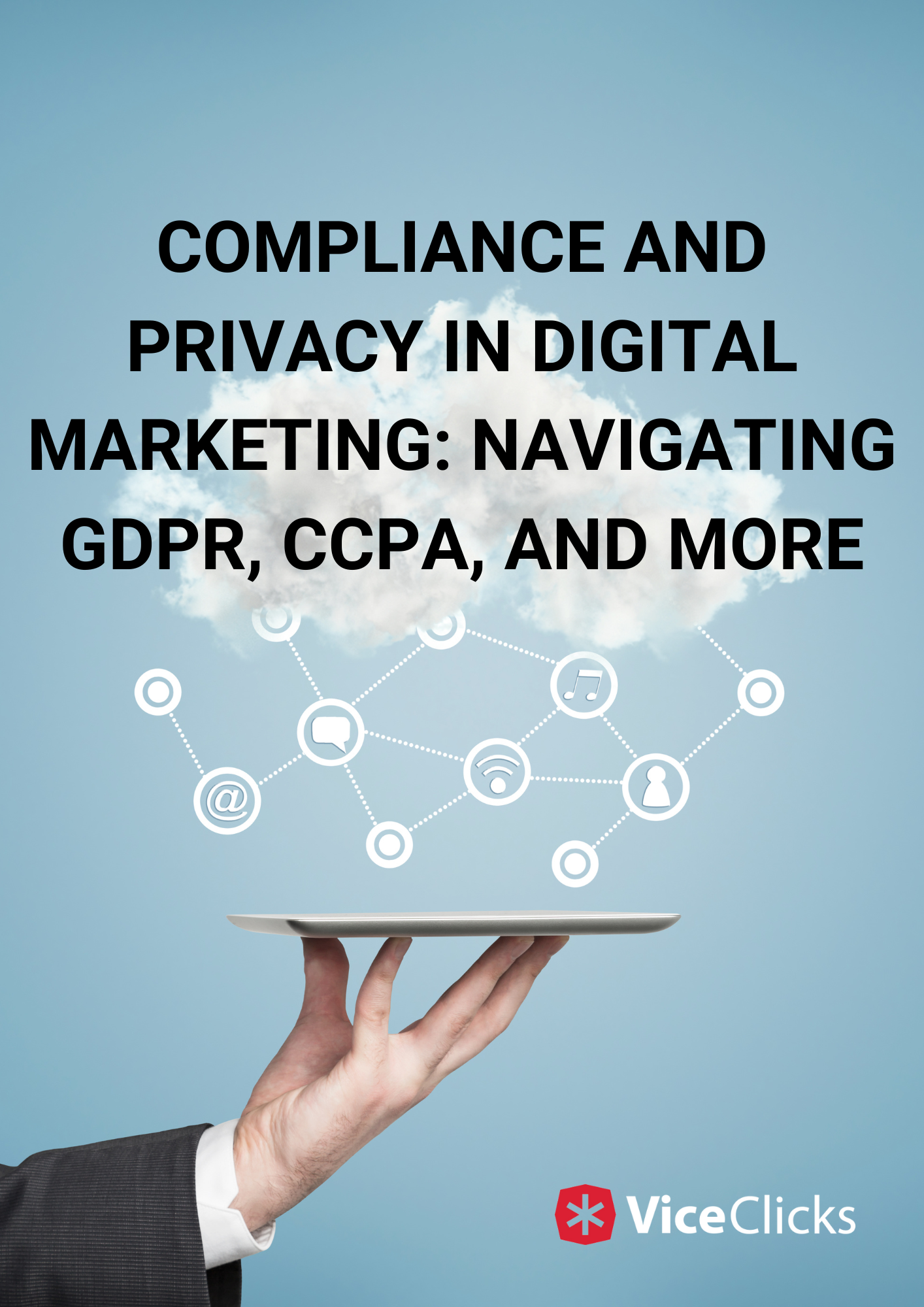Compliance and Privacy in Digital Marketing: Navig …

In the dynamic landscape of digital marketing, ensuring compliance with privacy regulations is paramount. With the advent of stringent data protection laws like the General Data Protection Regulation (GDPR) and the California Consumer Privacy Act (CCPA), businesses must navigate these waters adeptly to build and maintain trust with their audience. This article provides comprehensive guidance on aligning your digital marketing practices with privacy regulations, emphasizing the importance of transparency, consent, and accountability.
The Regulatory Landscape
1. Understanding GDPR
The GDPR, implemented in the European Union in 2018, set a global standard for data protection and privacy. It mandates that businesses obtain clear and explicit consent before collecting or processing personal data. Complying with GDPR not only ensures legal adherence but also establishes a foundation of trust with your audience.
2. Demystifying CCPA
The California Consumer Privacy Act, akin to GDPR, governs data protection in California. It grants consumers more control over their personal information, enabling them to request its deletion and opt-out of data sales. Adhering to CCPA is crucial for businesses operating in California or targeting its residents.
Best Practices for Compliance
1. Transparent Data Handling
Transparency is the cornerstone of compliance. Clearly communicate to your audience how their data will be used, stored, and shared. This transparency fosters trust and empowers users to make informed decisions about their privacy.
2. Obtaining Explicit Consent
Prioritize obtaining explicit consent before collecting any personal information. This includes explicit opt-ins for newsletters, cookie usage, and other data processing activities. Make it easy for users to understand and manage their consent preferences.
3. Data Minimization and Purpose Limitation
Collect only the data that is strictly necessary for the intended purpose. Avoid overreach and be specific about why you need each piece of information. This not only aids compliance but also streamlines your marketing efforts toward more targeted and effective campaigns.
4. Secure Data Storage and Processing
Implement robust security measures to safeguard the data you collect. Encryption, access controls, and regular security audits are essential components. By ensuring the safety of user data, you not only comply with regulations but also instill confidence in your audience.
5. Providing Opt-Out Mechanisms
Respect users’ rights to opt out of data collection and processing. Offer clear and accessible opt-out mechanisms for activities like email marketing, retargeting campaigns, and data sharing.
6. Facilitating Data Access and Portability
Compliance goes hand-in-hand with providing users access to their own data. Allow them to view and, if necessary, download their information. This empowers users and demonstrates your commitment to transparency.
Building Trust through Compliance
1. Open Communication
Maintain open channels of communication regarding your data practices. Use clear, jargon-free language to explain your privacy policy and how it aligns with regulations.
2. Educate Your Audience
Offer resources that educate your audience about their privacy rights and how you uphold them. This could be in the form of blog posts, infographics, or dedicated privacy pages on your website.
3. Demonstrate Accountability
Take ownership of your data practices. If a breach occurs, respond promptly, inform affected users, and outline the steps taken to rectify the situation. This transparency in adversity builds trust.
4. Regular Auditing and Updating
Stay vigilant by conducting regular audits of your data handling practices. Update your policies to align with evolving regulations and ensure continued compliance.
5. Seek Legal Counsel
If in doubt, seek legal counsel. Consulting with privacy experts or legal professionals can provide invaluable insights and ensure you’re taking all necessary measures to comply with relevant laws.
Case Studies: Exemplary Compliance in Action
Case Study 1: Company X – GDPR Compliance Leads to Trust
Company X, an e-commerce giant, implemented a stringent GDPR compliance strategy. They revised their privacy policy, obtained explicit consent for newsletter subscriptions, and bolstered their data security measures. The result? A 25% increase in customer trust and a 30% rise in opt-in rates.
Case Study 2: Start-up Y – Navigating CCPA for Success
Start-up Y, based in California, prioritized CCPA compliance from inception. They embedded data access features in their platform, enabling users to view and delete their information. This proactive approach not only ensured legal adherence but also garnered praise for their commitment to privacy.
Conclusion: A Commitment to Privacy and Trust
In the digital age, compliance with privacy regulations is not just a legal obligation, but a cornerstone of building trust with your audience. By embracing transparency, obtaining explicit consent, and demonstrating accountability, businesses can not only navigate GDPR, CCPA, and other regulations, but also cultivate a loyal and confident customer base. Upholding privacy is not only good practice; it’s the foundation of ethical and successful digital marketing in today’s world.
